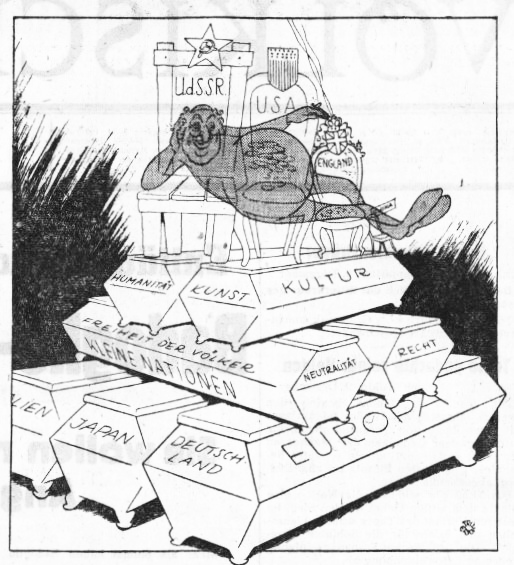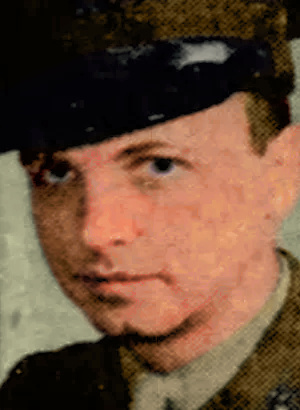U.S. liberalizes voluntary censorship code for newspapers
Washington (UP) –
The Office of Censorship today acted to encourage freer presentation of war news in newspapers and on the air by liberalizing the voluntary codes covering press and radio and by assuming wider authority as arbiter of what may be published or broadcast.
In a special note to publishers and broadcasters introducing code revisions effective immediately, it said:
You are reminded that whenever anyone else, in any part of the country, makes a request which appears unreasonable or out of harmony with the code, you are at liberty to appeal at once to the Office of Censorship.
Much confusion would be avoided if such appeals were more frequent.
Military censorship is still supreme in foreign battle theaters, but from now on, the Office of Censorship constitutes itself as “appropriate authority” for clearing “material of all classes” whether or not such material has been announced officially.
Director Byron Price explained that the code revisions and the censorship’s assumption of previously unexercised power as an appropriate authority emphasized “the standing invitation to appeal doubtful cases to this office.”
Mr. Price said his office was concerned by what he called a “dangerous psychology” becoming increasingly apparent among newspapers and radio stations – a willingness to suppress news on almost anybody’s say-so for fear of violating the code.
He said even Chambers of Commerce in some instances and publicity agents in others, for example, had been able to persuade newspapers to withhold publication of legitimate news.
Mr. Price continued:
A great many people are anxious to keep things out of the paper for their own reasons. This sort of pressure every newspaper resists automatically in peacetime. I hope that this resistance isn’t going to be broken down just because we have a voluntary code in wartime.
I don’t want it to get so that everybody who walks into a newspaper office can suppress a news story. I want to guard against such a psychology.
Mr. Price made it clear, for example, that War Department orders to press relations officers over the country “have nothing to do with what newspapers may publish; they are not orders to newspapers and the Army has never so considered them.”
He said:
No government agency whatsoever, including the Office of Censorship, has any authority to issue any orders as to what newspapers can publish – all we can do is request.
Price said the elimination of some restrictions and the relaxation of others in the codes “reflect the studied opinion of the government that more information can now be published and broadcast without danger to national security.” And security, he added, remains the “single consideration” of the censorship.
He continued:
This conclusion in no way presupposes an early end of the war. It does take account of the fact that the war has taken an important turn from the defensive to the offensive.
Mr. Price emphasized that the Office of Censorship is not a news releasing agency and that the other agencies are still authority for what news they give out.
But when some agency asks suppression for security reasons of news in the possession of a broadcaster or publisher, and the code does not appear to apply:
We will be glad to have a little discussion with the agency and see if we can get them to change their minds.
Neither the Army, Navy nor any other agency, Price said, has any “authority, on delegation from the President or from any other source,” to ask newspapers not to publish news stories not covered by the code.
The code revisions make it possible for the press and radio to present a somewhat more complete picture of war production than before. They remove restrictions against nationwide summaries of war production, progress of war production as a whole, and movements of Lend-Lease material.
A new production clause restricts only secret weapons and data on output of specific weapons. For example, under the revised code a newspaper could publish on its own authority that total airplane production was a certain figure. But it should not, without appropriate authority, say how many of the planes were bombers, how many were fighters, etc.
The restricted list of critical materials is reduced by almost one-half eliminating aluminum, artificial rubber, magnesium, silk, cork, copper, optical glass and mercury.
Under the revisions, the Navy is no longer sole appropriate authority for information concerning the sinking or damaging of merchant vessels. Henceforth the War Shipping Authority is an appropriate source for such news.
Mr. Price said:
This will allow the story of the vital and heroic part of the Merchant Marine in winning the war to be told more fully by the War Shipping Administration.
Other changes included:
-
Restrictions are removed on “premature disclosure of diplomatic discussions” when such discussions do not concern military operations.
-
All restrictions concerning resettlement centers and about the location of war prisoner camps are eliminated. The FBI is recognized along with the War Department as an appropriate authority for information about escaped war prisoners.
-
Restrictions are removed as to publication of rumors or enemy propaganda on the grounds that they are “no longer necessary.”

